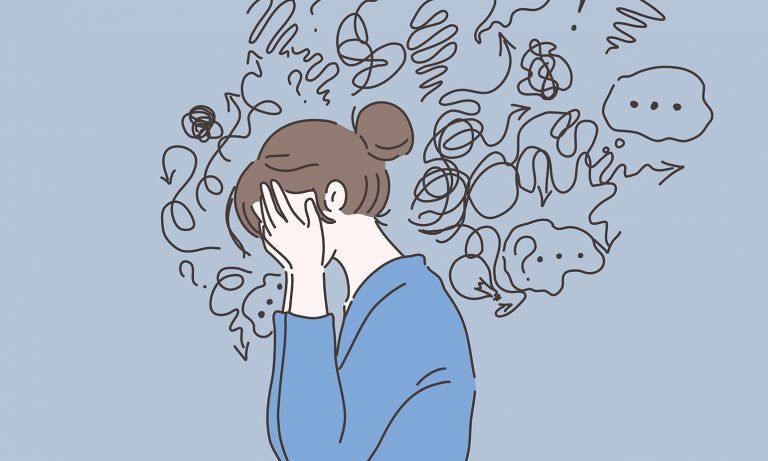
Dealing With Abortion Guilt | Breaking The Stigma.
Abortion is a deeply personal and emotionally charged decision that many individuals have been confronted with. For some, the aftermath of an abortion can invoke feelings of guilt, shame, and stigma.
In this comprehensive guide, we will explore how to cope with these emotions, communicate with loved ones about the experience, and work towards healing and closure.
Medical Aspects of Abortion
There are two common types of abortion: medication and in-clinic surgical procedures. Medication abortion, or the abortion pill, effectively terminates pregnancy within the first ten weeks.
The pill includes two medications: mifepristone, which blocks the hormone needed for pregnancy to continue, and misoprostol, which induces a miscarriage.
In-clinic abortions include aspiration and dilation and evacuation (D&E), which are both safe procedures conducted by healthcare professionals. Aspiration is typically performed within the first 16 weeks of pregnancy, while D&E is done after 16 weeks.
Procedure & Impact On Patients
Medication abortion consists of taking two pills at different intervals. Mifepristone is taken first at the healthcare center, followed by misoprostol one to two days later, typically at home.
The process causes cramping and bleeding, which are signs the body is expelling the pregnancy.
In-clinic surgical abortion procedures, like aspiration and D&E, are performed at healthcare centers. Patients are given pain relief, and the procedures are generally short, taking anywhere between 10 to 30 minutes.
Physical side effects can include bleeding, cramping, and fatigue.
Emotional Implications & Guilt
While medical aspects of abortion are essential to understand, it is equally crucial to address emotional implications, such as guilt and shame.
Our society often stigmatizes abortion, which can lead to individuals feeling isolated and ashamed. It is essential to remember that personal values and beliefs differ, and each person’s decision regarding abortion is uniquely their own.
Here are some ways to cope with these emotions:
Communicate with Your Partner or Family/Community
Open and honest communication is vital when discussing your abortion experience with your partner, family, or community.
By discussing the reasons behind your decision and acknowledging the emotions involved, you can create an environment for understanding and support.
Keep in mind that some may not react positively or support your decision, and it is essential to mentally prepare for these reactions.
Dealing with Friends Against Abortion
Debating heavy topics with friends can sometimes lead to uncomfortable situations. When it comes to abortion, discussions can become even more heated.
It’s essential to remember that everyone has the right to their opinion, and finding common ground might ultimately lead to a better understanding of each other’s perspective.
When dealing with friends who are totally against abortion, it is crucial to remember your right to make decisions about your body and life.
Educate your friends about the procedure and your emotional journey, but remember that you don’t owe anyone an explanation.
Maintain respectful and open communication, but also set boundaries to protect your well-being from negative or judgmental reactions.
Finding Healing and Closure
Healing and closure are essential for moving past feelings of guilt and shame. Consider participating in activities that promote self-care, such as yoga, meditation, or journaling.
Engage in experiences that bring joy, and consider professional therapy to work through complex emotions and outcomes.
Resources For Women
There are numerous resources available to help individuals cope with abortion guilt and stigma. Additionally, mental health professionals, counseling, and support groups are valuable resources for sharing experiences and connecting with others who have faced similar situations.
The content below includes websites, hotlines, support groups, medical professionals, community-led initiatives, information on different types of abortions, legal aspects, self-care tips, post-abortion resources, and alternative family planning methods.
- National Abortion Federation: This organization offers a wealth of information on abortion, including resources, referrals, and support for women considering abortion.
- Planned Parenthood: A leading provider of reproductive health services, including abortion, providing resources and information on local clinics and healthcare providers.
- SisterSong: SisterSong is a reproductive justice collective that supports women’s rights and empowerment, offering resources and advocacy for women of color.
- Abortion Funds: A network of local funds that provide financial assistance to women seeking abortions.
- National Abortion Federation Hotline: A toll-free hotline offering confidential advice and referrals to nearby abortion providers.
Breaking The Abortion Stigma.
Dealing with guilt associated with abortion can be a difficult and often lonely process, but it’s also incredibly common.
Sharing stories and discussing the issue with others who have similar experiences is one of the best ways to help break down any stigmas that still remain about abortion.
Remember, there is no right or wrong way to feel – your emotions are valid and should be cared for in whatever way works best for you.
Whether you find strength in seeking out counselling or simply talking to friends or family, know that you are not alone in your experience.
Contact us if you need help.
The Fort Lauderdale Women’s Center is Offering The One Hour Abortion Pill Procedure – 3 to 14 Weeks. Patients who qualify may receive a significant discount in the price of the procedure if they meet certain criteria.
Call Us Now For Same Day Appointment.


Leave a Reply
You must be logged in to post a comment.